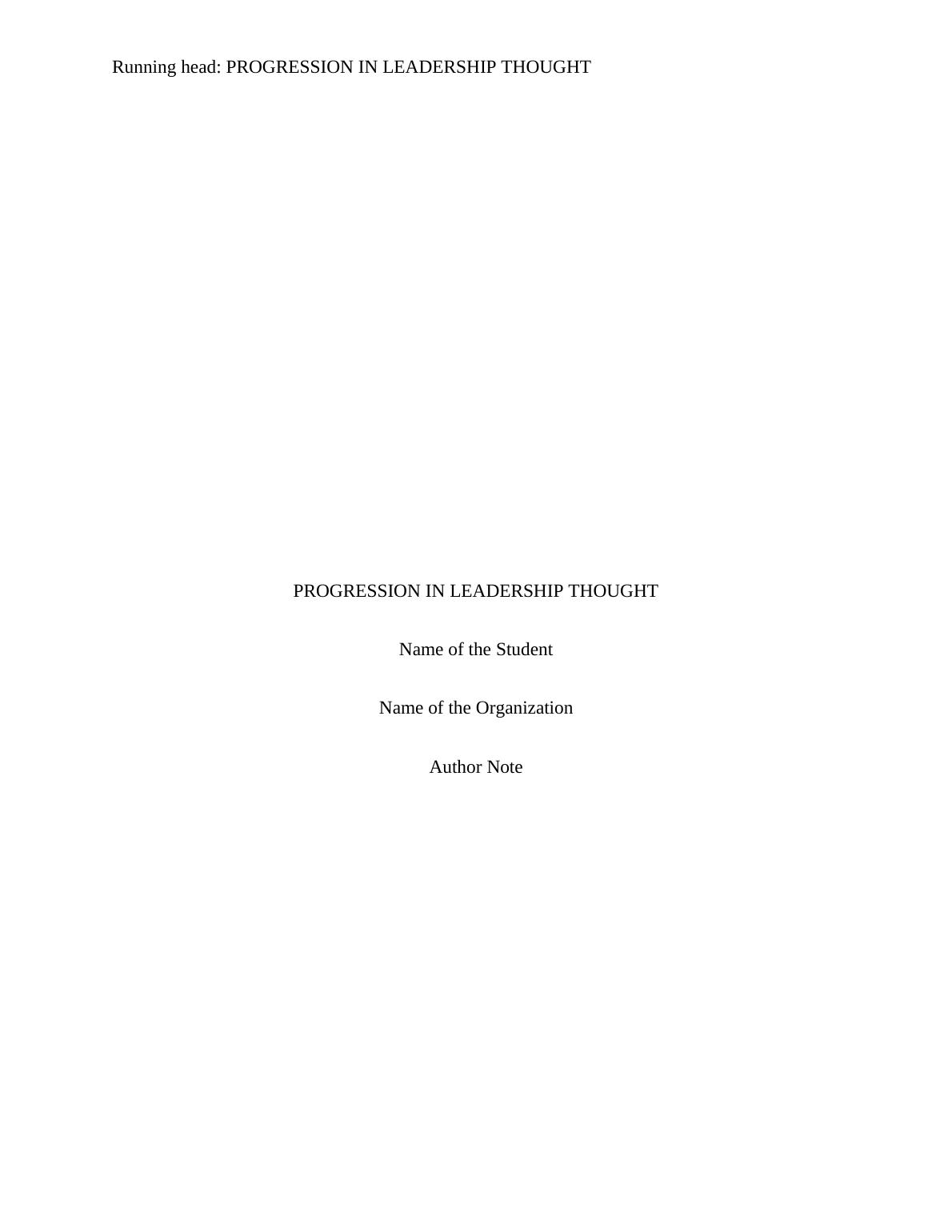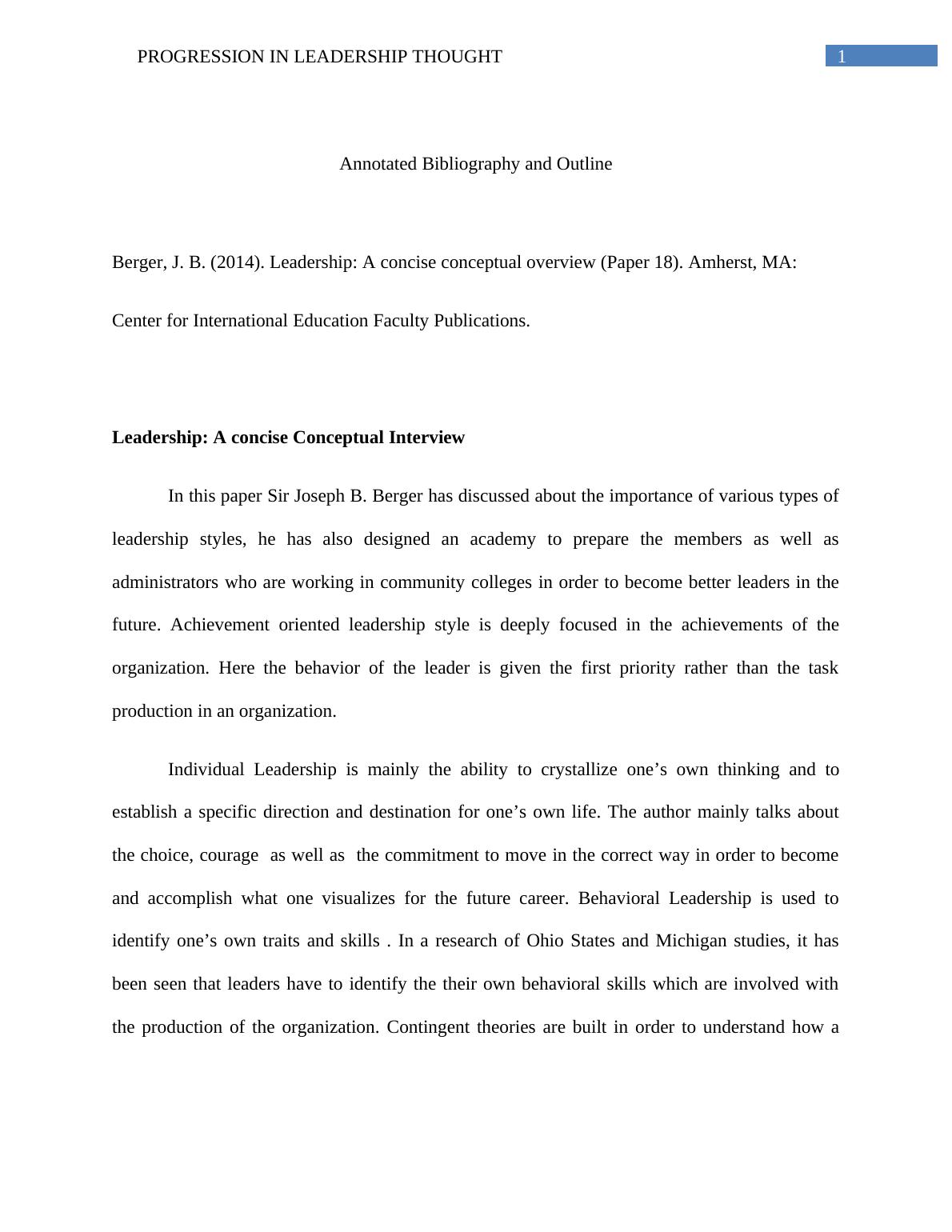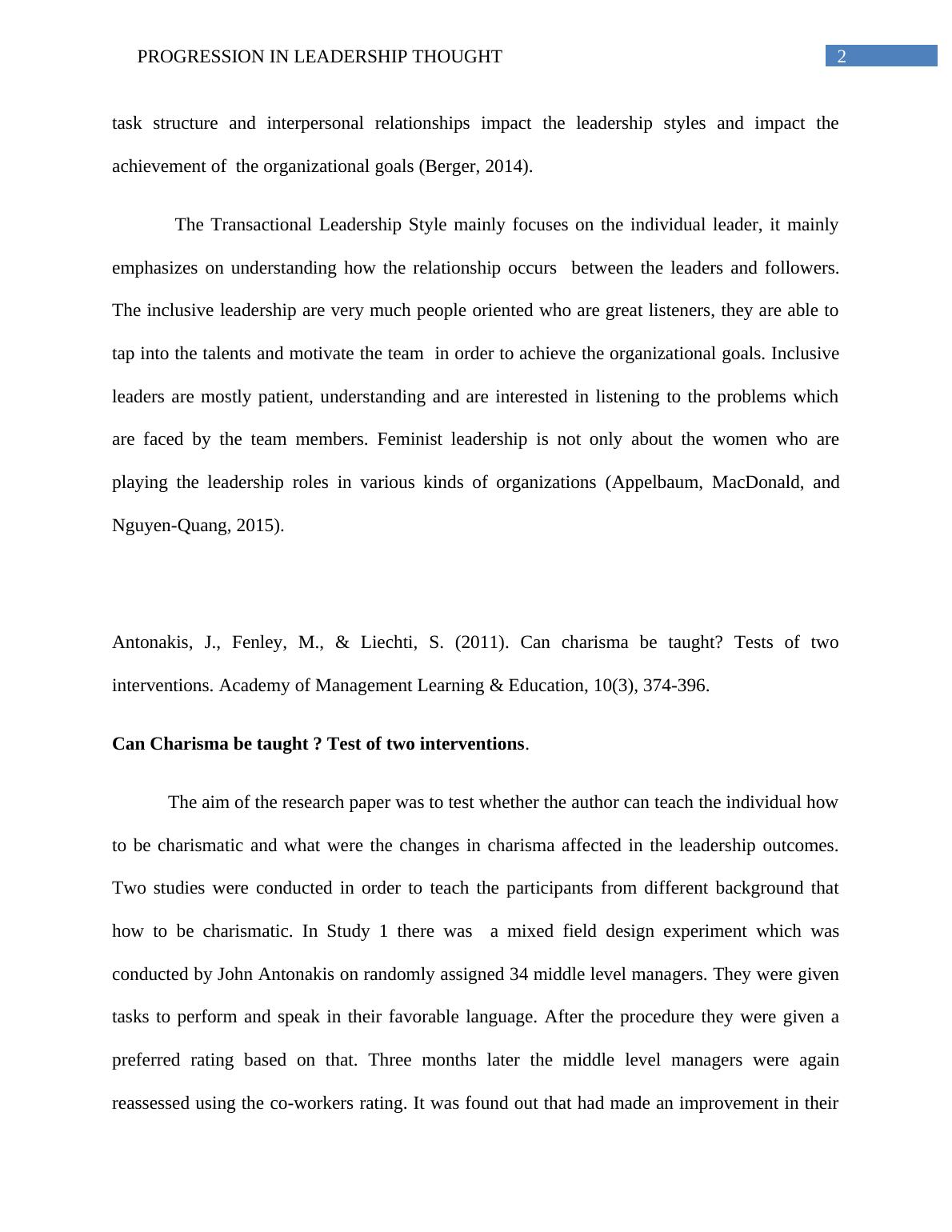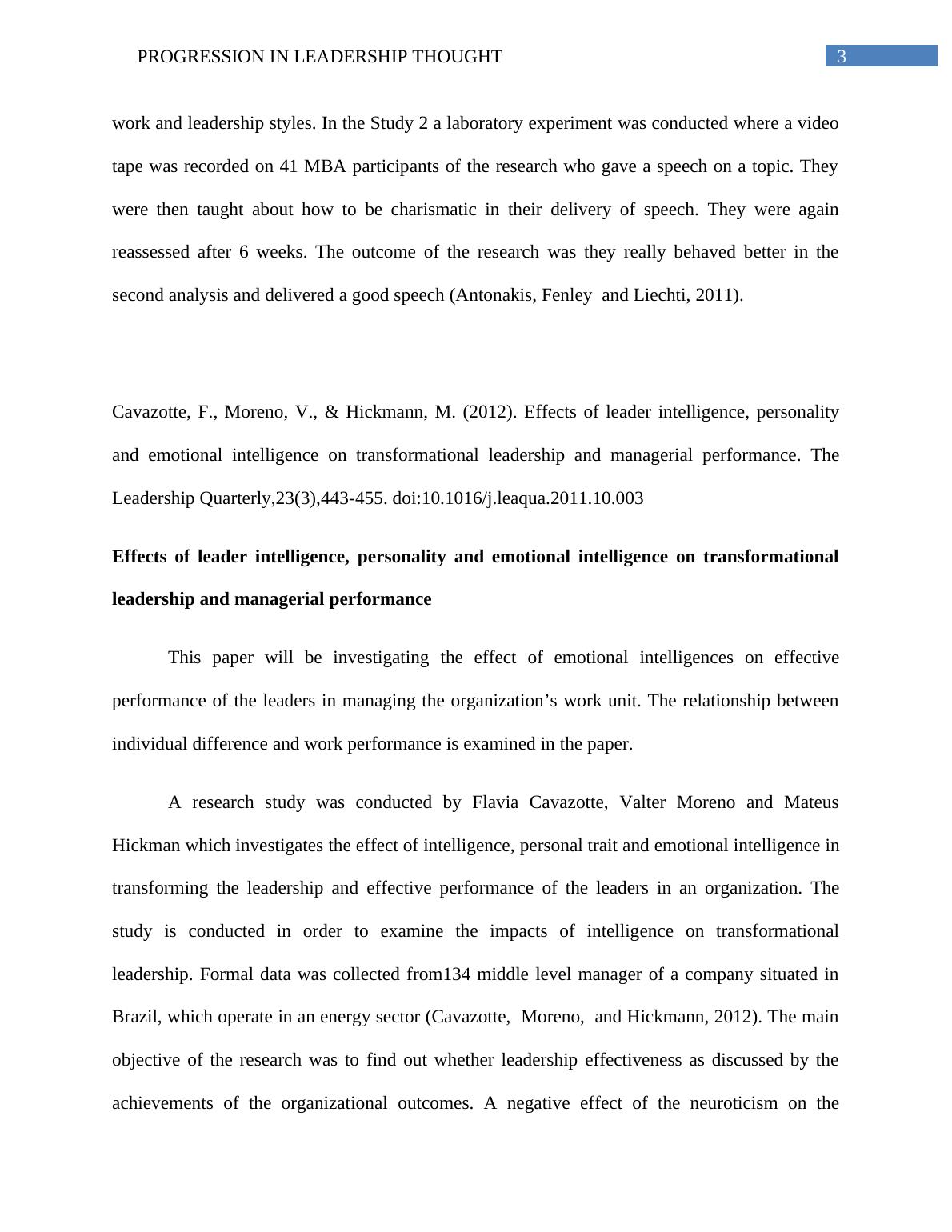Progression in Leadership Thought
Investigating the effects of intelligence, personality traits, and emotional intelligence on transformational leadership and managerial performance.
11 Pages2214 Words209 Views
Added on 2023-04-20
About This Document
This annotated bibliography and outline explores the progression in leadership thought, focusing on different leadership styles and their impact on organizational goals. It includes a study on whether charisma can be taught and its effects on leadership outcomes. The paper also examines the relationship between leader intelligence, personality, emotional intelligence, and transformational leadership. Additionally, it discusses the importance of understanding what drives people in an organization and how to increase leadership effectiveness. Lastly, it critically reviews the literature on organizational citizenship behavior among leaders.
Progression in Leadership Thought
Investigating the effects of intelligence, personality traits, and emotional intelligence on transformational leadership and managerial performance.
Added on 2023-04-20
ShareRelated Documents
End of preview
Want to access all the pages? Upload your documents or become a member.
(PDF) Leadership Communication in Project Management
|6
|1782
|118
Dynamics of Leadership (Doc)
|11
|3030
|48




